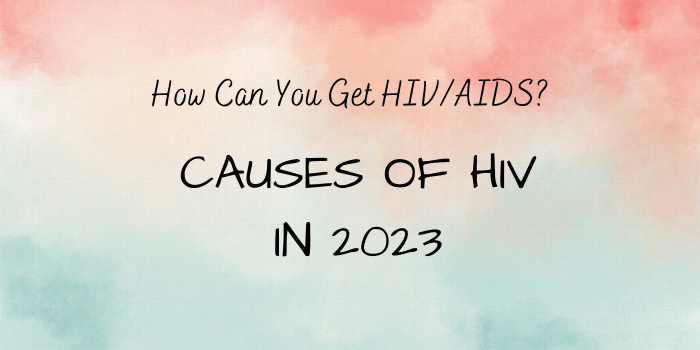HIV tests are used to diagnose HIV infection. HIV is a virus that attacks the body’s immune system. Over time, HIV can damage the immune system so severely that it can lead to AIDS. AIDS is the most advanced stage of HIV infection and can lead to death sometimes.
What Are the Different Types of HIV Tests?
There are three main types of HIV tests: antibody tests, antigen/antibody tests, and nucleic acid tests (NATs).
- Antibody tests: Antibody tests look for antibodies to HIV in your blood or oral fluid. Antibodies are proteins that your immune system produces when it is exposed to a virus. Antibody tests can detect HIV infection about 23 to 90 days after exposure.
- Antigen/antibody tests: Antigen/antibody tests look for both antibodies to HIV and antigens. Antigens are foreign substances that cause your immune system to activate. Antigen/antibody tests can detect HIV infection about 18 to 45 days after exposure.
- Nucleic acid tests (NATs): NATs look for the actual HIV in your blood. NATs are the most accurate HIV tests and can detect HIV infection as early as 10 to 33 days after exposure.
How Do HIV Tests Work?
HIV tests work by detecting different substances in your blood or oral fluid. These substances indicate whether or not you have been exposed to HIV.
- Antibody tests: Antibody tests detect antibodies to HIV in your blood or oral fluid. Antibodies are proteins that your immune system produces when it is exposed to a virus.
- Antigen/antibody tests: Antigen/antibody tests detect both antibodies to HIV and antigens. Antigens are foreign substances that cause your immune system to activate.
- Nucleic acid tests (NATs): NATs detect the actual HIV in your blood. NATs are the most accurate HIV tests and can detect HIV infection as early as 10 to 33 days after exposure.
What Are 6 HIV Laboratory Tests?
The six most common HIV laboratory tests are:
- Enzyme-linked immunosorbent assay (ELISA): This is the most common HIV test. It looks for antibodies to HIV in the blood or oral fluid. Antibodies are proteins that the body produces in response to infection. ELISA tests can detect HIV infection about 23 to 90 days after exposure.
- Rapid HIV tests: These tests are also called point-of-care tests. They can be done in a doctor’s office, clinic, or other setting without the need for a laboratory. Rapid HIV tests look for antibodies or antigens to HIV in the blood or oral fluid. Rapid HIV tests can detect HIV infection about 18 to 45 days after exposure.
- Western blot test: This test is used to confirm a positive HIV test result. It looks for antibodies to different HIV proteins in the blood. Western blot tests are very accurate, but they can take longer to get results than other HIV tests.
- HIV viral load test: This test measures the amount of HIV in the blood. Viral load tests are used to monitor HIV infection and to determine how well HIV treatment is working. Viral load tests can also be used to predict the risk of transmitting HIV to others.
- HIV p24 antigen test: This test looks for the p24 antigen, which is a protein that is produced by HIV. P24 antigen tests can detect HIV infection about 7 to 10 days after exposure. However, p24 antigen tests are not as widely used as other HIV tests because they are not as accurate.
- HIV RNA test: This test looks for the RNA of the HIV in the blood. RNA tests are the most accurate HIV tests and can detect HIV infection as early as 10 to 33 days after exposure. However, RNA tests are not as widely used as other HIV tests because they are more expensive and complex.
It is important to note that the best HIV test for you will depend on your circumstances. Talk to your doctor about which HIV test is right for you.
Which Is The Most Accurate HIV Test In 2023?
(NAT) is the most accurate HIV test available and is recommended by the Centers for Disease Control and Prevention (CDC). Previously, HIV could not be detected in blood for weeks or months after exposure.
This was because it takes the body time to produce antibodies to HIV, and most antibody tests cannot detect HIV until antibodies are present.
Other HIV tests, such as rapid HIV tests and ELISA tests, are not as accurate as NATs and can take longer to detect HIV. Rapid HIV tests can detect HIV about 18 to 45 days after exposure, and ELISA tests can detect HIV about 23 to 90 days after exposure.
Which HIV Test Is Right for Me?
The type of HIV test that is right for you depends on your individual needs and circumstances. If you have any questions, talk to your doctor.
Can I Test HIV At Home?
Yes, you can also if you have an HIV infection or not at your home by using the home HIV test kit. This allows people to collect a blood or saliva sample at home and mail it to a laboratory for analysis. Home tests can provide confidentiality but may be less accurate than lab-based tests.
How Often Should I Get Tested For HIV?
The CDC recommends that everyone get tested for HIV at least once in their lifetime. People who are at high risk of HIV infection should get tested more often.
What Are The Risks Of HIV Testing?
The risks of HIV testing are very low. Some people may experience mild pain or redness at the site where the blood is drawn.
What Should I Do If I Test Positive For HIV?
If you test positive for HIV, it is important to see a doctor right away. Treatment for HIV can help to control the virus and prevent it from progressing to AIDS.
Can I Still Have Sex If I Have HIV?
Yes, you can still have sex if you have HIV. However, it is important to take precautions to prevent transmitting the virus to your partner. This includes using condoms and taking antiretroviral therapy (ART) or other HIV medicines.
Can I Get Pregnant If I Have HIV?
Yes, you can get pregnant if you have HIV. However, it is important to take precautions to prevent transmitting the virus to your baby. This includes taking antiretroviral therapy (ART) and getting a cesarean section delivery.
What Is The Most Common Diagnostic Test For HIV?
The most common diagnostic test for HIV is the enzyme-linked immunosorbent assay (ELISA) test. It is a blood test that looks for antibodies to HIV in the blood. Antibodies are proteins that the body produces in response to infection. ELISA tests are very accurate and can detect HIV infection about 23 to 90 days after exposure.
How Soon Can HIV Be Detected By A Blood Test?
The most accurate HIV test is the nucleic acid test (NAT), which can detect HIV in the blood 10 to 33 days after exposure. Other HIV tests, such as rapid HIV tests and ELISA tests, are not as accurate and can take longer to detect HIV.
If you have any concerns about HIV exposure, it is important to get tested as soon as possible so that you can receive treatment quickly and reduce the risk of transmitting the virus to others.
What Is The Window Period For HIV Tests?
The window period refers to the time between potential exposure to HIV and when the test can detect infection. The window period is 10-33 days for NATs, 18-45 days for antigen/antibody tests, and 23-90 days for antibody-only tests.
What Does A Positive HIV Test Result Mean?
A positive HIV test means that HIV antibodies or antigens have been detected, indicating HIV infection. A positive result should be followed up with a confirmatory test.
Can I Get An HIV Test Without Anyone Knowing?
Yes, you can get confidential HIV testing at many health clinics and community health centers. You can also use an at-home HIV test kit.
How Much Does An HIV Test Cost?
HIV tests can range from free to about $100 or more. Many clinics offer free or low-cost testing. Check with your insurance provider as testing may be covered.









